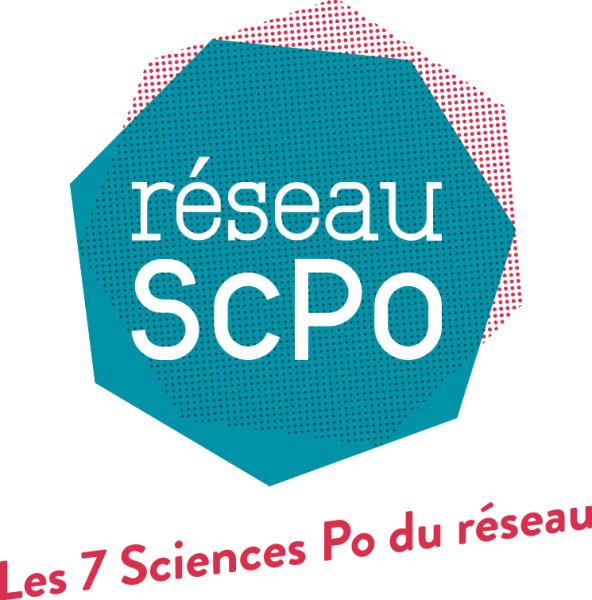Discover : In a few figures.
agreements
Created/Established in 1991, Sciences Po Lille is a public and highly selective « Grande Ecole », sharing the same title as the 9 other Sciences Po institutions across the country. Our campus in Lille is part of the Sciences Po Europe network, which brings together all the “Sciences Po” with the same entrance exam. Sciences Po Lille is associated to the University of Lille.
Sciences Po Lille’s eminence and appealing makes it one of the most selective higher-education institutions in France, with the entrance exam’s total success rate being between 7% and 12%. Promos are composed of students from every region of France who become enriched by the connections they have with the ever-growing number of international students,
Known for the diversity of its teaching staff and the valuable professional insertion of its graduates, Sciences Po Lille offers a study program which combines the valuation of curiosity and critical thinking (1st cycle) which further progresses to the specialization to broader categories of careers (2nd cycle). In 3rd year, students conduct a joint mobility program that involves a 6-month course in one of our partner universities followed by a 6-month internship abroad. In the 5th year of study (Master 2 cycle), students must complete a work placement in their last semester of study for a maximum period of 6 months in France or internationally. This work placement is essential to the enrichment and reinforcement of the student’s skills they have acquired during their studies.
Concerned with respecting the important values of higher-education public service, Sciences Po Lille guides its students’ pathways by promoting a policy for ambitious student life. This is particularly regarding financial aid for student mobility in their 3rd year.
Since 2007, Sciences Po Lille has developed a democratisation program (IEP), which now involves 800 students from middle-school and high-school (college and lycee) from more than 110 institutions. In 2010, near to 30% of high-school graduates were recipients of the IEP (PEI) and passed the common entrance exam of the 7 Sciences Po institutions and 90% received the baccalaureat with a C grade (60%) or above.
Sciences Po Lille’s offer of international and pluridisciplinary majors (focusing on social sciences) enable students to construct their careers in academic excellence and their professional experience prospects. We are proud to propose original programs such as a PPE or a Sustainable Development Master. Our students have also the opportunity to perform a double major with the School of Journalism and students majoring in international finance and commerce can put their academic knowledge into practice by alternating their time between their studies at Sciences Po with a work placement. Sciences Po Lille is constantly seeking to improve and make our study plans the best they can be.
What about the 10 Sciences Po schools?
When we talk about Sciences Po, we refer to prestigious institutions. We are not comprehensive universities but institutes focusing on social sciences.
Previously known as Institutes of Political Studies, or IEPs, Sciences Po schools are ten publicly owned institutions of higher learning in France.
They are located in Aix-en Provence, Bordeaux, Grenoble, Lille, Lyon, Paris, Rennes, Strasbourg, Saint-Germain en Laye and Toulouse.
Their ambition is the study and research of contemporary social sciences (political science, International Affairs, European studies, law, economics, finance, history management, etc…)
Our students study a curriculum that is highly practical.
We are considered as some of the most selective in France. Moreover Sciences Pos are known the place where main political and business leaders are born.
According to article 2 of an 18 December 1989 decree, their mission is:
1- to contribute to the training of higher civil servants as well as executives in the public, para-public and private sectors, notably in the State and decentralized communities
2- to develop the research in political and administrative sciences.
Sciences Po Lille shares with other Sciences Po (the ones of le réseau des Sciences Po, Aix-en Provence, Lille, Lyon, Rennes, Strasbourg, Saint-Germain en Laye and Toulouse ) the admission procedure. 
- Between 7% and 15% of students who were selected during the entrance examination.
- 11 different entry pathways from 1st to 4th year (2 shared ways) (master cycle 1)
- Students admitted averaged a 16/20 at the baccalaureate
- A master’s diploma of 5 years
- 4 double-diplomas (Münster, Canterbury, Salamanca, Roma)
- 4 double-Masters (Aston, Szeged, John Hopkins Bologna Center, Tel-Aviv)
- 7173 alumni since its establishment
- 300 international students welcomed every year and 110 international students who are enrolled in the diploma cycle.
- 230 students in international mobility
- 235 international university agreements in 50 countries across the 5 continents
- 25 international research professors invited each year
- 17 000 teaching hours a year
- 69 administration and technicians staff members
- 5 research laboratories (CERAPS – CLERSE – IRDP – IRHIS- CECILLE)
- 4525 middle school and high school students participating in the Sciences Po Lille’s democratisation programme (PEI)


